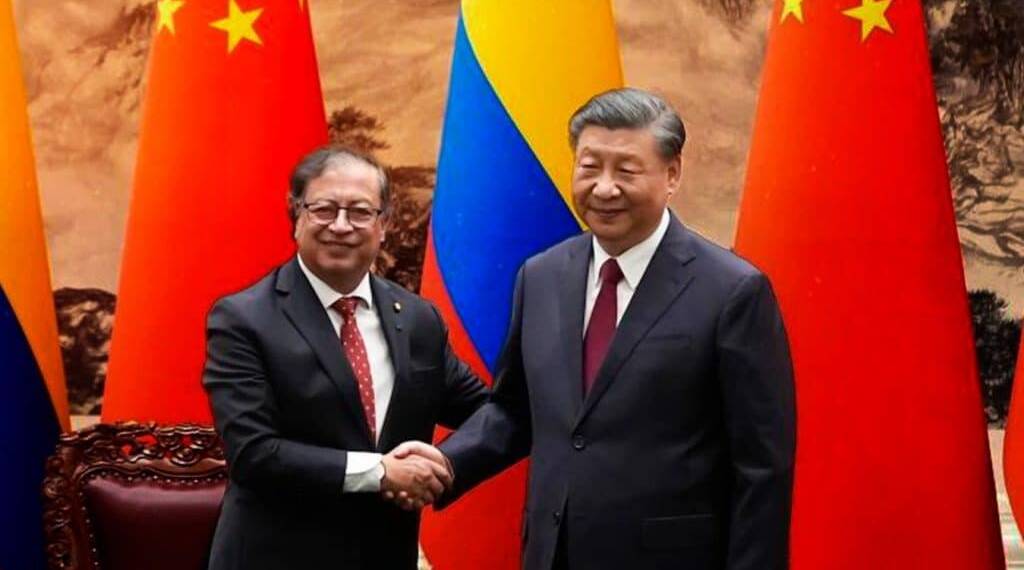In a rapidly shifting global security landscape, Colombia has signaled a significant pivot in its defense and diplomatic strategy by decisively turning away from the prospect of NATO membership. At the same time, trust within NATO itself is faltering, with mounting tensions surrounding Hungary’s increasingly antagonistic stance toward the alliance. These developments underscore deeper fractures in the alliance.
Colombia: From NATO to BRICS
Since becoming a NATO Global Partner in 2017, Colombia has enjoyed privileged defense cooperation with the alliance. The partnership was designed to address shared security challenges such as terrorism, cyber threats, and maritime security. Colombia even entered a formal partnership program in 2021, enhancing joint training and information-sharing capabilities.
But despite the deepening ties, Colombian officials have firmly ruled out NATO membership. Colombia is not a member of NATO; however, it is a NATO Global Partner, the first Latin American nation to achieve this status, and also a Major Non-NATO Ally (MNNA) of the United States.
But now in a shocking move for the West it is angling towards BRICS looking to distance from NATO, “Colombia cannot be a member, does not want to be a member of NATO,” said then-Defense Minister Juan Carlos Pinzón in 2021.
Under President Gustavo Petro, Colombia has taken an even more non-aligned approach, distancing itself further from traditional Western alliances. In 2025, Petro announced Colombia’s intention to pursue closer ties with the BRICS+ bloc—a coalition increasingly seen as an alternative to Western-dominated institutions.
Petro went further than simply criticizing NATO’s silence or perceived complicity. He proposed creating an entirely new military coalition, what he called an “army of light,” that would reject militarism rooted in Western interests.
“These are not armies of freedom,” Petro said. “They are armies of darkness. We must create an army of light with all nations willing to join.”
NATO Hungary relations suffer
While Colombia keeps NATO at arm’s length, Hungary—an existing NATO member—is straining the alliance from within.
Under Prime Minister Viktor Orbán, Hungary has embraced closer relations with Russia and China, creating unease among Western nations. The tension came to a head in recent years with Hungary’s resistance to supporting NATO’s mission in Ukraine and its delayed ratification of Sweden’s NATO membership.
Most alarming are recent allegations that NATO attempted to circumvent Hungarian oversight by smuggling weapons into Ukraine via Hungarian territory. Though details remain murky, Hungarian intelligence claims to have disrupted these efforts, stoking domestic outrage and further eroding trust between Budapest and Brussels.
Orbán has consistently framed NATO as overreaching, insisting Hungary will not participate in any operations beyond its borders. Critics argue that this stance undermines the alliance’s core principle of collective defense and reveals a growing “Article 5 trust gap”—a term increasingly used to describe NATO members’ uncertainty about Hungary’s reliability in a crisis
Coup attempt against Orban
US Congressman Brandon Gill of Texas, speaking on the question of Hungary asked: “Why do you think the Biden administration was so interested in using our tax dollars to funnel monetary support for domestic political opposition in an allied nation in order to harm a democratically elected government?”
With this question, the Congressman was referring to Prime Minister Viktor Orbán of Hungary and his right-wing populist Fidesz party, in power in the country since 2010, as indicated by the caption on his X post where he shared a clip of the recent congressional hearing.
In response to the question by Congressman Gill, Gonzalez said: “For the same reason it [was] in Guatemala and Macedonia with equally pro-US leaders. It just didn’t like conservative governments that were trying to do things like fighting for life, fighting for demographic growth. All these countries disagreed with their foreign policy, all these leaders were also very pro-Israel, pro-Taiwan, in the case of Guatemala.
So, I think it was just that the Biden administration disagreed with the politics of these countries, even though it went against US interests to disagree with these governments” he said.
These statements are damning, coupled with NATO’s overt beahviours the trust in NATO, US and its allies is fast fading among many neutral nations who are wondering how is it beneficial to align with a lobby that attempts regime changes in its own partner nations. On top of it many are unwilling to be bullied to get into an axis against Russia, they themselves have little to no political, military or trade clash with Moscow however that is what NATO wants. If this is the way the alliance continues to behave with nations it is sure to lose out on many potential allies and moreover they will veer towards BRICS in a double whammy.








